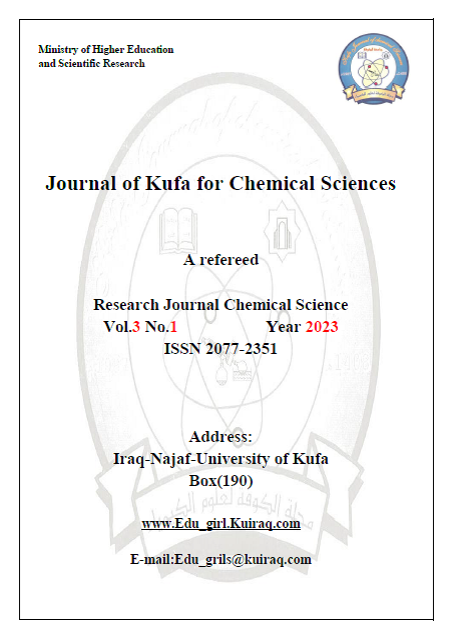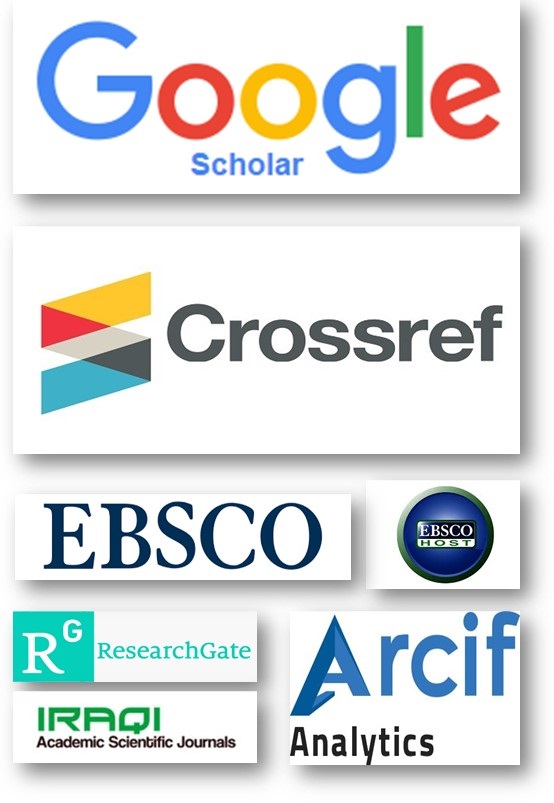Study the Effect of RAGE and HMGB1 Genes Polymorphism on Breast Cancer Susceptibility in Iraqi Female
DOI:
https://doi.org/10.36329/jkcm/2023/v3.i1.11996Keywords:
breast cancer, HMGB1 polymorphisms, Receptor for Advanced Glycation End Products (RAGE), (DAMPs)Abstract
Background: The most frequent malignancy among women globally is breast cancer (BC). Breast lobules or ducts are the genesis of breast cancer, which is an uncontrolled development of epithelial cells. High mobility group protein box 1 (HMGB1) possesses both pro- and anti-tumorigenic bioactivities, which contribute to its complicated function in carcinogenesis. Damage associated Molecular Pattern molecules (DAMPs) generated following tissue injury include HMGB1, many S100 proteins, and others. RAGE is thought to be a receptor for these molecul
Aim of the study: The study was aimed to find the High mobility group protein box 1 (HMGB1) HMGB1 (rs1412125) and Receptor for Advanced Glycation End Products RAGE (rs1800624) genotypic and allelic frequency. Using Allele Specefic polymerase chain reaction AC-PCR and Polymerase Chain Reaction Restriction Fragment Length Polymorphism RFLP-PCR in BC patients and healthy controls, as well as their correlation with breast cancer susceptibility.
Material and methods :. Samples were taken at Marjan Cancer Hospital, Babylon. HMGB1 rs1412125 and RAGE rs18400624 polymorphisms were evaluated for patients and controls using the PCR-RFLP and allele-specific polymerase chain reaction (AS-PCR) method. SPSS software was used to perform the statistical analysis.
Results : There is non-significant difference between patients and control in TT, AA, and TA genotyping of (rs1800624) in RAGE gene (p=0.22), non-significant difference between patients and control in TT, TC, and CC genotyping of (rs1412125) in HMGB1 gene (p=0.09).
Conclusion : Our results showed no association between HMGB1 polymorphisms and RAGE and breast cancer risk.
Downloads
Downloads
Published
How to Cite
Issue
Section
License
Copyright (c) 2023 Journal of Kufa for Chemical Sciences

This work is licensed under a Creative Commons Attribution 4.0 International License.
Open-access Statement
The journal « Journal Of Kufa For Chemical Sciences» provides immediate open access to its content on the principle that making research freely available to the public supports a greater global exchange of knowledge. Full-text access to scientific articles of the journal is presented on the official website in the Archives section.
This is in accordance with the BOAI definition of open access. The licensing policy is compatible with the overwhelming majority of open access and archiving policies.
The journal «Journal Of Kufa For Chemical Sciences» is an open access journal, which means all its content is freely available without charge to the user or his/her institution. Users are allowed to read, download, copy, distribute, print, search, or link to the full texts of the articles, or use them for any other lawful purpose, without asking prior permission from the publisher or the author as long as they cite the source.The journal is licensed by Creative Commons Attribution International( CC Attribution 4.0) .


